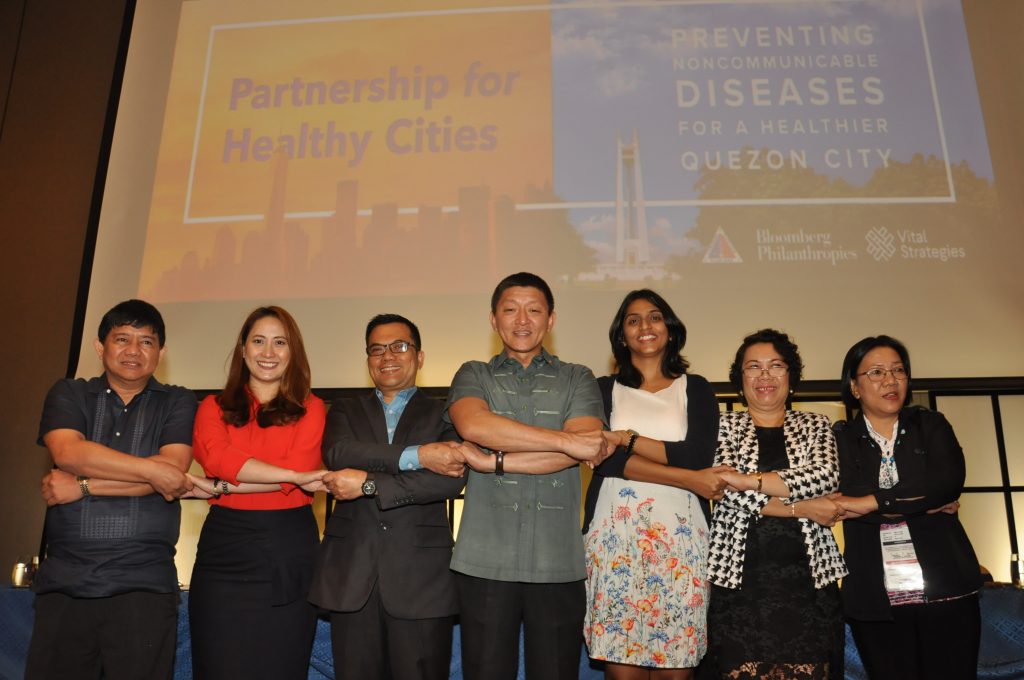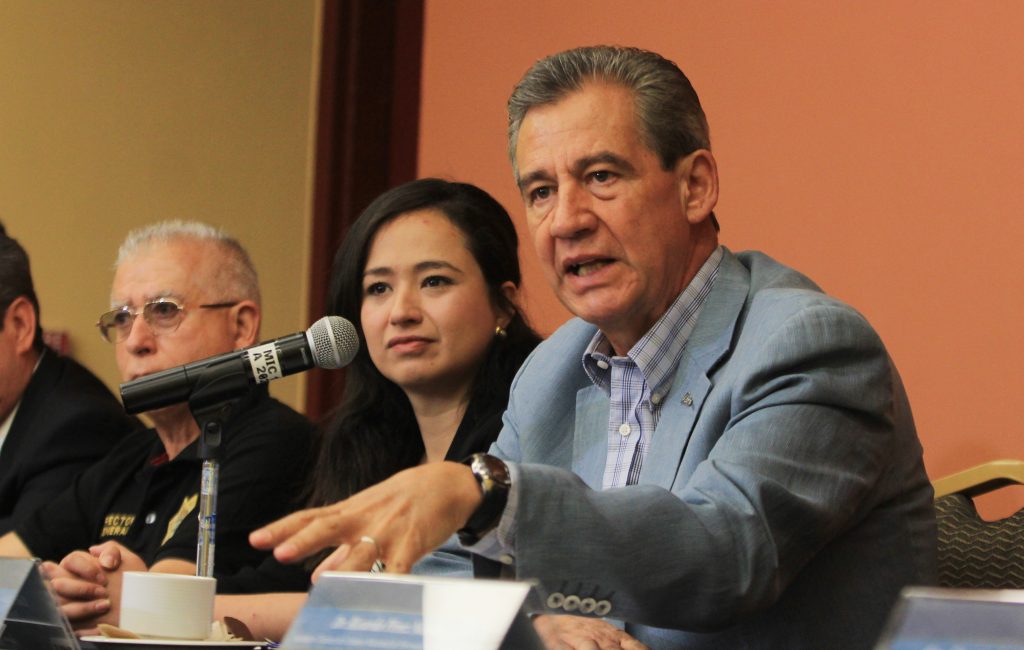With progress well underway among the 54 cities in the Partnership for Healthy Cities, three more stepped forward last month to unveil public health interventions aimed at saving lives by preventing non-communicable diseases (NCDs) or injuries.
Kyiv, Ukraine announced its walkable/bikeable Partnership initiative at a stakeholders’ meeting and technical workshop (pictured) that was co-hosted by the World Resources Institute (WRI), the Partnership’s technical partner in Kyiv. The city wants to encourage physical activity but its old road designs are not friendly to pedestrians or cyclists. Through the Partnership for Healthy Cities, the Ukranian capital will redesign the Rusanivka district of the city in a matter that encourages safe multiple use, with plans to scale the project throughout Kyiv in the future. In addition to the physical changes, the intention is to equip city technicians with knowledge about the latest thinking in road traffic design and public space planning.

Kyiv city officials joined World Resources Institute (WRI) experts at a workshop on making the Ukrainian capital more “walkable” and “bikeable.”
The same week, Quezon City, Philippines City Administrator Aldrin Cuña announced the details of the city’s Partnership initiative to enforce an existing ordinance that prohibits the sale or promotion of sugary drinks inside and near both public and private schools. City inspectors recently found that 70% of elementary schools and 90% of high schools are still selling and promoting these beverages, despite evidence linking sugary drinks to higher rates of obesity and NCDs. The Partnership strategy includes developing implementation guidelines, baseline and endline surveys and a communication campaign, with the goal of bringing down NCD rates among schoolchildren and citywide.

Quezon City Administrator Aldrin Cuña (center) joined Vital Strategies’ Ramya Kancharla (third from right), local legislators and city and WHO officials at the Partnership launch.
Finally, León, Mexico Mayor Hector López Santillana announced the city’s initiative to reduce drink driving at a day-long event that featured a press conference and technical meetings. In León, more than 450 traffic crashes were related to alcohol in 2017. The city’s Partnership initiative includes a campaign to pass a local amendment changing the driver’s permitted blood alcohol concentration (BAC) limit from 0.08 g/dl to 0.05 g/dl, and a communications effort focused on dissuading young people from driving while under the influence of alcohol. The goal is to not just to change the law and make the roads safer but to enlist local educational institutions and businesses in an ongoing conversation about such risks.

León Mayor Hector López Santillana (right) announced the city’s drink driving Partnership initiative with Vital Strategies’ Mariana Espinosa Estrada (center).
The Partnership for Healthy Cities is led by former New York City Mayor Michael Bloomberg in his role as World Health Organization Ambassador for Non-communicable Diseases (NCDs). The Partnership was borne out of the conviction that cities are the engines of change: They can move quickly to implement life-saving policies that affect great numbers of people.
With the majority of the world’s population now living in urban settings, cities are uniquely positioned to transform the fight against injuries and NCDs diseases by implementing proven policies that significantly reduce exposure to risk factors.
The Partnership is supported by Bloomberg Philanthropies, in partnership with the World Health Organization and Vital Strategies.